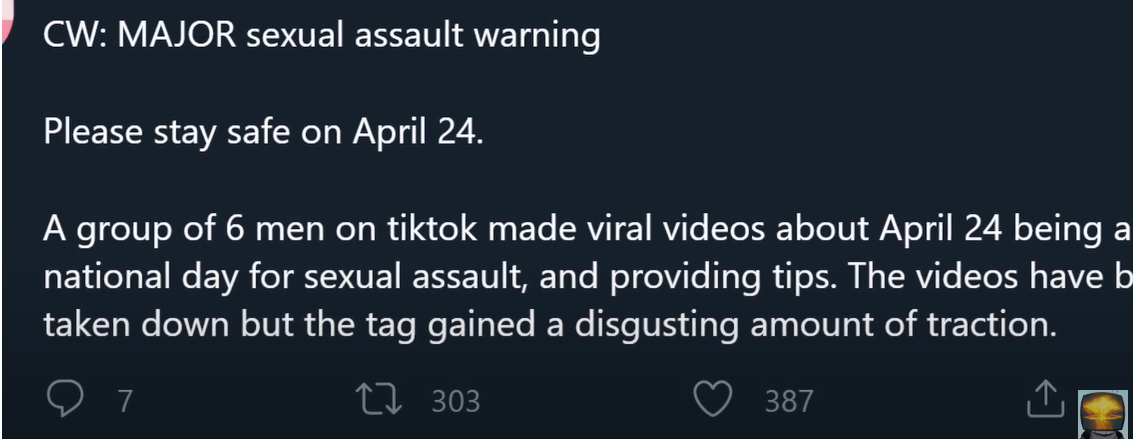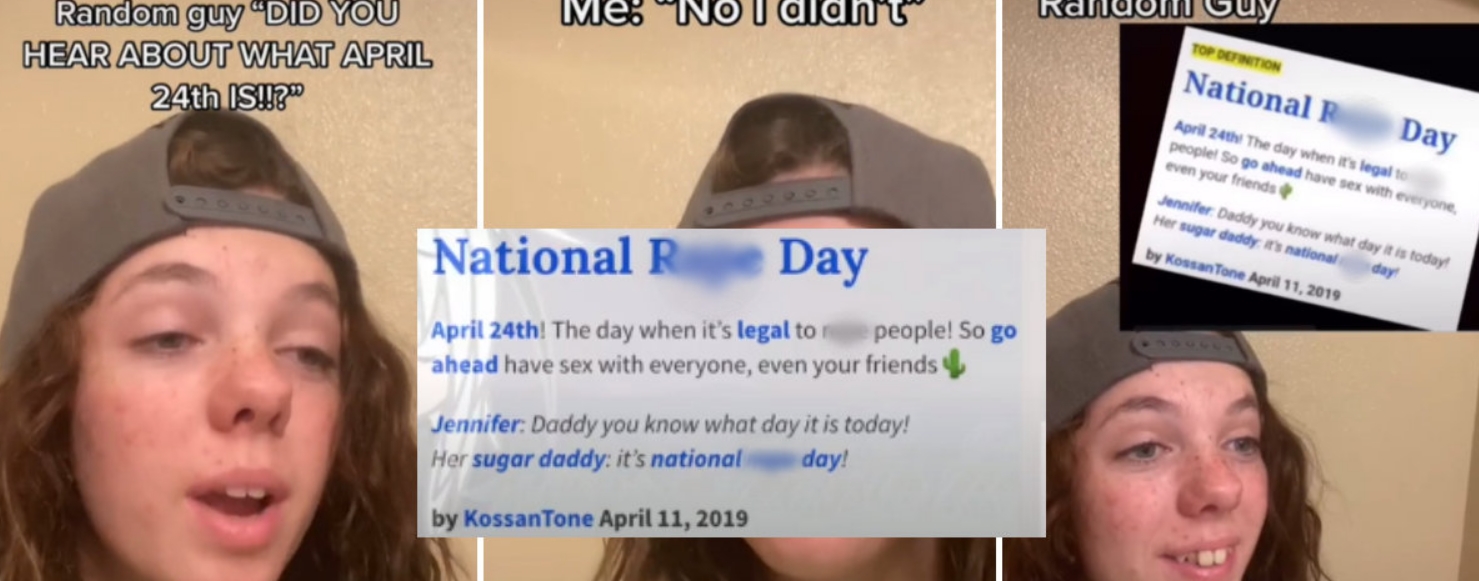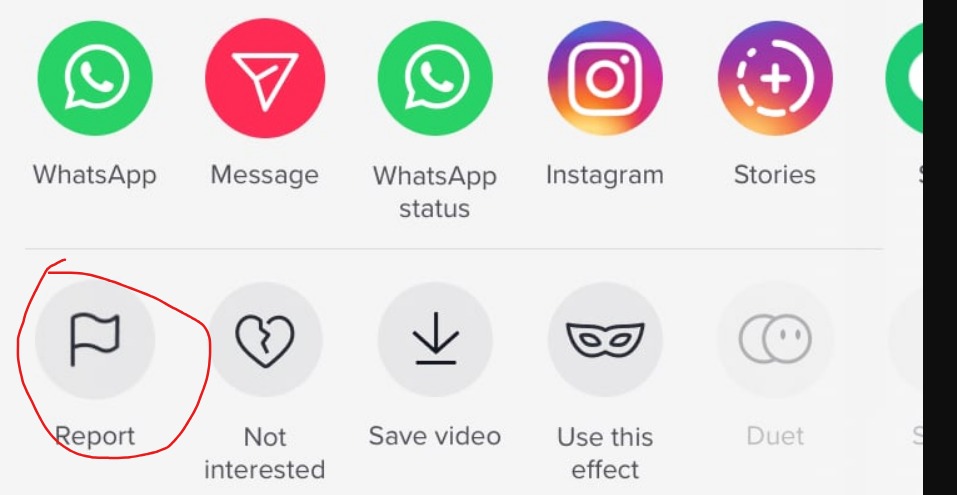Key Takeaways
- The April 24th TikTok trend wrongly claims that sexual assault is legal on that day. It started as a fake story in 2021.
- This trend caused a lot of worry and anger online, and many people and groups strongly criticized it.
- TikTok users and the platform are trying hard to get rid of any posts that spread or support this false information.
- There are now efforts to teach users about the risks of such trends and to encourage them to report harmful content.
- Despite these actions, the trend has popped up again, showing how hard it is to stop dangerous false information on the internet.
The April 24th TikTok trend falsely promoted a national holiday for sexual assault, causing alarm and prompting calls for more vigilance on social media.
This hoax began online and quickly became a serious concern as it spread through TikTok and other networks, alarming users globally. The false claim suggested that sexual violence would be legal on this day, sparking significant outrage from the online community and safety organizations. To fight this misinformation, there is now more monitoring of social media and efforts to educate people about the dangers and illegality of such actions, highlighting the importance of using digital platforms responsibly.
What is Happening on April 24th on TikTok?

The disturbing trend
April 24th on TikTok is wrongly said to be a day when sexual assault is allowed. This false claim started in 2021 by some users on the platform, stating that such crimes would be accepted on this day.
Although it’s completely untrue, the hoax has caused a lot of worry and spread widely, leading to many warnings and calls for careful watch. People have reacted by making videos that explain the truth and by working together to increase safety and urge others to report any threatening behavior.
Claims of sexual assault promotion

Claims of a dangerous trend on TikTok, where April 24th is wrongly marked as a day for sexual assault, have surfaced again. This has raised serious concerns and calls for action among users. TikTok and its users are responding quickly. They are working to take down harmful content and keep the platform safe.
| Aspect | Response | Action |
|---|---|---|
| User Vigilance | Increased awareness | Report suspicious content |
| Platform Role | Active monitoring | Remove harmful posts |
| Community Action | Share accurate information | Educate others |
What Is the April 24th “Trend”?
Not a recognized holiday
Despite rumors on social media, April 24th is not a recognized holiday or event. The date has wrongly been labeled by some online groups as a day for a harmful ‘celebration’ that isn’t real. This false information causes unnecessary worry.
- No official recognition: No government has marked April 24th as a public holiday.
- No support from reputable sources: Well-known organizations and groups do not endorse or promote this date.
- Not on official calendars: You won’t find April 24th listed as a special date on any national or international calendars.
- No historical importance: There are no historical events linked to this date that would require celebration or remembrance.
Origins of the idea unclear
The origin of the April 24th trend is not clear. It first appeared on TikTok in 2021 when a group of six men called it a national day for sexual assaults, wrongly claiming this was legal. It’s unclear who these men were or if they were joking, which makes it hard to find out how the trend started.
This uncertainty has caused a lot of confusion and worry. The spread of this harmful idea on social media platforms like TikTok has made it even harder to track its beginnings.
Previous cases of the trend resurfacing
- Awareness Videos: Creators make videos to teach about the trend’s dangers.
- Community Responses: Users unite in comments and shares to reject and report harmful posts.
- Official Warnings: Social media leaders remind everyone of the rules and the consequences of promoting violence.
- Security Measures: Tips for staying safe on April 24 are shared widely to avoid any problems.
How to Take Action Against April 24th TikTok Content

Reporting videos promoting sexual assault
- Find the Report Button: It’s usually below the video or on the user’s page.
- Choose the Right Category: Pick options like ‘harmful dangerous acts’ or ‘hate speech’ to describe the content correctly.
- Explain the Problem: Briefly say why the video is wrong, noting its promotion of illegal behavior.
- Send the Report: Complete your report to help the platform act quickly.
Responsibility of users and platform to combat harmful content
It’s key to realize both users and TikTok itself must work together to stop bad content. Users should report dangerous videos and also help others understand why it’s bad to spread them.
TikTok needs to keep a close watch and quickly take down any videos that break its rules. They should also make their systems better at spotting these videos before they spread.
Conclusion
In conclusion, the April 24th TikTok trend highlights the critical need for better online safety and quick action against dangerous content. Both users and platforms must work harder to enforce rules and address harmful posts quickly.
- Awareness: It’s important to understand how seemingly harmless trends can turn dangerous.
- Education: We need to teach people how to spot and stop online risks.
- Community Involvement: We should encourage everyone to report harmful content and support those affected, instead of spreading fear.
- Policy Enforcement: Stronger actions are needed to find and stop harmful content online.
Frequently Asked Questions
How Did Tiktok Initially Respond to the April 24TH Trend?
TikTok first responded to the April 24th trend by asking users to report videos that promoted harmful behavior. They stressed their dedication to keeping the platform safe.
Are There Legal Repercussions for Promoting Harmful Trends Like April 24th?
Promoting dangerous trends can result in legal trouble, such as charges for incitement or endangering the public, depending on the laws in the area. Online platforms usually work with the police quickly to handle these issues.
What Psychological Impact Does the April 24TH Trend Have on Viewers?
The April 24th trend on TikTok can make viewers feel anxious, scared, and upset. Watching videos that suggest violence can have lasting mental effects.
How Do Other Social Media Platforms Handle Similar Harmful Trends?
Other social media platforms tackle harmful trends by improving monitoring. They use AI and human teams to spot and delete harmful content. They also educate users and update safety rules to raise awareness.
What Long-Term Measures Are Being Discussed to Prevent Such Trends?
To stop dangerous trends on social media, we need better content monitoring, tougher rules, and better education on digital safety so people can spot and report bad content.
